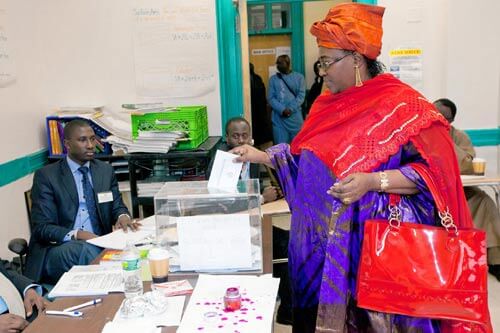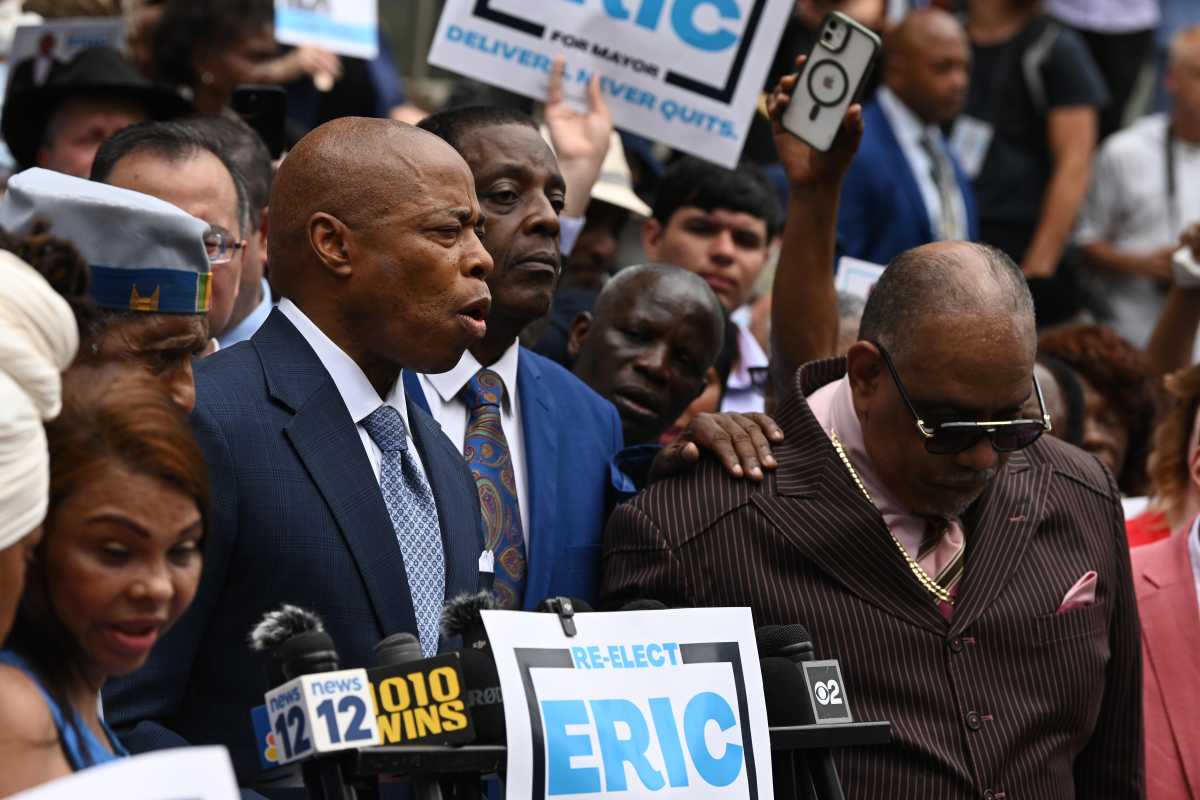Expatriot Senegalese nationals in Harlem, Brooklyn, the Bronx and cities across the U.S. last weekend participated in the election of a new president in their homeland.
Opposition candidate Macky Sall won a runoff in second round voting after a long emotional campaign, particularly significant because incumbent Abdoulaye Wade changed the constitution to allow himself to run again.
In West Harlem, the halls of Frederick Douglass Academy were abuzz. Voters entered one of the six precincts, showed IDs, picked up a card for each candidate and an envelope, and disappeared behind canvas drop-cloths where they made their choice then deposited the ballots in plexiglass voting boxes.
After dipping a finger in ink and finishing the process, many stayed behind to greet friends and follow election news from back home on the radio, exuding unity as an immigrant community, overshadowing political differences.
Amadou T. Ba, of the Bronx, a construction worker who has lived in New York 20 years explained: “We argue about politics but we share everything else,” describing the camaraderie of the moment.
On the constitutional change that allowed Wade to run again, Ba remarked that Wade supporters argued that “even in America they do it. Why not in Senegal.”
When people are talking they mention Mayor Bloomberg’s changing of election laws to remain in office, but adding: “I don’t like what he did, but I think he is a good mayor otherwise.”
Supporters of both candidates compared the constitutional change allowing Wade to run again, to changes to the City Charter that allowed him to run a third time.
“For all the setbacks to democracy, the vote seems to be taking care of the issue,” said Souleymane Diagne, a philosophy professor at Columbia University, as early word out of Senegal indicated that Sall was leading.
Diagne was on hand as president of DE CENA, the organization responsible for monitoring the 27 polling places overseas, compiling the votes and sending them to Dakar.
“The election is all the more significant because of what is happening in Mali,” [Senegal’s neighbor to the east] Dakar said, where there is an ongoing Touareg rebellion crisis that led to a presidential military coup.
Yacine Wade, a dancer and former member of the Senegalese National Ballet spoke of her father’s life as an example of the change that was needed in Senegal.
“He worked all his life for the government as security for the president, but after he had a stroke and was sick he received no support.”
Ironically Wade, who dances here with the Sankofa Drum and Dance Ensemble, the Rhythm Monsters and others, supports herself as a home health care nurse.
The crowd swelled by mid-afternoon. Groups of men conversed in the entrance courtyard, a group of women in the colorful traditional dress that the younger generation refer to as “granman” sat on the steps inside.
Polls in Senegal closed at 2:00 p.m. New York time and before polls closed here at 6:00 p.m. President Wade had conceded defeat.
Final results were not known at press time, but early estimates had Sall winning 82.5 percent of the vote, compared to Wade’s 17.5 percent in the Diaspora according to Prof. Diagne.
Amadou Ndiaye, a Harlem resident for 20 years who represents the Socialist Party of Senegal in the U.S.summed up the feeling this way: “If there are two cars, one driver is 90 and the other in his mid-50s, whose car are you going to use?
“The burden of running a country is much heavier than driving a car.”
























